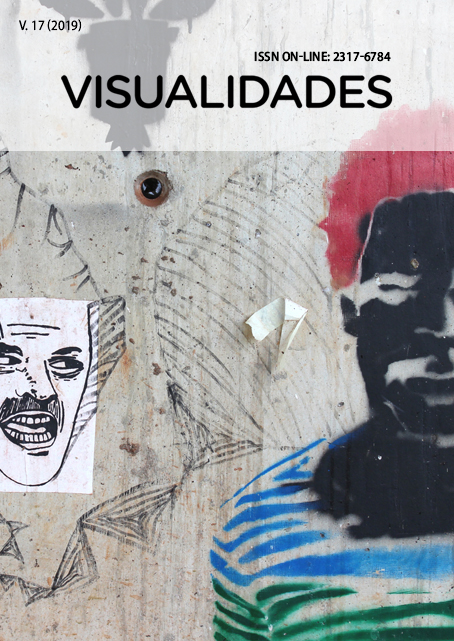O primitivo flerta com o moderno
os filmes de Carmen Miranda como encenação das relações entre Estados Unidos e América Latina na Política da Boa Vizinhança
DOI:
https://doi.org/10.5216/vis.v17.57401Palavras-chave:
Carmen Miranda, Boa Vizinhança, FilmeResumo
Este trabalho debate e relaciona três cenas referentes aos três primeiros filmes de Carmen Miranda nos Estados Unidos, “Serenata Tropical” (Down Argentine Way, 1940), “Uma Noite no Rio” (That Night in Rio, 1941) e “Aconteceu em Havana” (Week-End in Havana, 1941). O objetivo é discutir como os cenários das cenas escolhidas dialogam entre si, estabelecendo na narrativa cinematográfica uma forte dualidade entre moderno e civilizado versus atrasado, agrário e selvagem, como representações das relações entre Estados Unidos e América Latina no contexto da Política da Boa Vizinhança.
Downloads
Downloads
Publicado
Como Citar
Edição
Seção
Licença

Este obra está licenciado com uma Licença Creative Commons Atribuição 4.0 Internacional.
Autores que publicam nesta revista concordam com os seguintes termos:
a. Autores mantém os direitos autorais e concedem à revista o direito de primeira publicação, com o trabalho simultaneamente licenciado sob a Licença Creative Commons Attribution 4.0 que permite o compartilhamento do trabalho com reconhecimento da autoria e publicação inicial nesta revista.
b. Autores têm autorização para assumir contratos adicionais separadamente, para distribuição não-exclusiva da versão do trabalho publicada nesta revista (ex.: publicar em repositório institucional ou como capítulo de livro), com reconhecimento de autoria e publicação inicial nesta revista.
c. Autores têm permissão para publicar e distribuir seu trabalho online (ex.: em repositórios institucionais ou na sua página pessoal) após a publicação inicial nesta revista, já que isso pode gerar alterações produtivas, bem como aumentar o impacto e a citação do trabalho publicado (Veja O Efeito do Acesso Livre).
Foram feitos todos os esforços para identificar e creditar os detentores de direitos sobre as imagens publicadas. Se tem direitos sobre alguma destas imagens e não foi corretamente identificado, por favor, entre em contato com a revista Visualidades e publicaremos a correção num dos próximos números.






